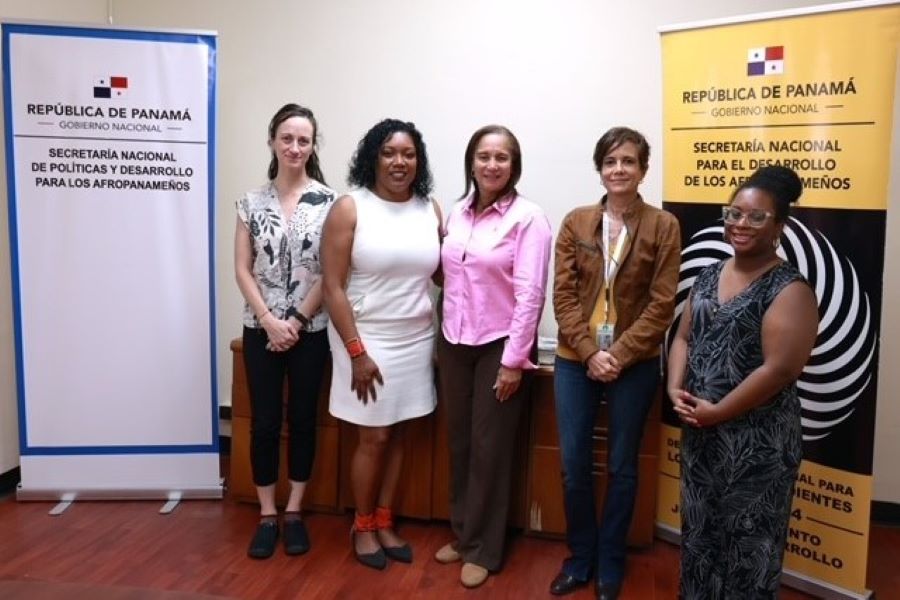
Florida State University’s Center of Population Sciences for Health Equity (CPSHE) is partnering with the Institute of Scientific Research and High Technology of Panama (INDICASAT-AIP), a biomedical research institute in the Republic of Panama’s City of Knowledge, marking a significant step toward advancing global health research.
The City of Knowledge, a government-sponsored hotspot for academic organizations, tech companies and non-governmental organizations, is also the home of FSU’s branch campus in Panama.
This collaboration brings together the community engagement expertise of CPSHE’s leadership, known for its dedication to advancing population sciences and promoting health equity, and INDICASAT-AIP, a leading institution in scientific research and high technology in Panama.
Three researchers from the CPSHE, which is housed in FSU’s College of Nursing, have been appointed assistant researchers with INDICASAT-AIP for the next three years. As part of their affiliation, CPSHE founding director Frankie Wong, co-director Eugenia Millender, and assistant director Casey Xavier Hall will collaborate on grant submissions, mentor doctoral students, present at conferences, and provide support and expertise in leading investigative studies.
Jing Wang, dean of the FSU College of Nursing, said the partnership is an example of how international collaboration can accelerate progress toward global health equity.
“By combining the expertise of both institutions, we can make a real difference in the lives of people in Panama and beyond,” Wang said. “This project has the potential to address health disparities in Afro-Panamanian communities and serve as a model for future research initiatives that prioritize community engagement and social justice. I am incredibly proud of the leadership role CPSHE is playing in this groundbreaking collaboration, and I look forward to seeing the positive impact it will have on the world.”
The CPSHE and INDICASAT-AIP will work toward decentralizing the type of research that’s conducted in Panama by engaging in more community-based studies and including the Afro-Panamanian population. The goal is to address health disparities and trust issues of the population within science and health care internationally.
“This collaboration highlights a shared commitment to advancing research and fostering international partnerships in the realm of health equity,” said Gabrielle Britton, the INDICASAT-AIP’s director of research for the Center of Neuroscience.
Millender and Britton are working on a study focused on cognition and health disparities in Afro-Panamanians and aim to build a community-based participatory program that extends beyond this single project. The study will use CPSHE’s expertise in community-based research to engage and connect with the Panamanian community and build upon the institute’s commitment to aging research and cognitive health studies.
The Gorgas Commemorative Institute for Health Studies (ICGES) in Panama and the National Secretary of Policies and Development for Afro-Panamanian (SENADAP) will support the project. ICGES is the nation’s leading organization for facilitating and conducting health research and where Wong and Millender are courtesy research associates. SENADAP is a Panamanian government entity responsible for supporting and advocating for projects aimed at strengthening and promoting the social, political, health and cultural rights of the Afro-descendant population in Panama.
“This joint effort with INDICASAT, ICGES, and SENADAP signifies a significant step forward in our commitment to global health research and collaboration,” Millender said. “By combining our strengths and resources, we can make a lasting impact on health outcomes globally.”
Britton drew parallels to the challenges faced by the Black/African American community in the United States and the health disparities experienced by Afro-Panamanian communities in Panama.
“Just like in the United States, in Panama, Black people are at higher risk for a number of different illnesses and conditions because they don’t have full access to health care or they reach health care later than most people,” Britton said.
Panama ranks as the second-most unequal country among the Americas, particularly affecting the traditionally Black populated city of Cologne. The city grapples with severe health problems, including the highest rates of HIV and tuberculosis. Britton stresses the importance of addressing these issues through science, focusing on generating data to influence public policy development and dismantle ingrained social structures.
“In Panama, just like in most countries in the world, African descendants are underrepresented in research,” Britton said. “We need to have more because in Panama, they represent a significant proportion of the population.”
Notably, the collaboration coincides with the Center for Disease Control and Prevention (CDC) moving its regional headquarters from Guatemala to the U.S. Embassy in Panama. Britton anticipates the CDC’s influence will improve data collection and public health research in Panama, adding a layer of significance to the partnership.
For more information about the CPSHE, visit cpshe.fsu.edu.




